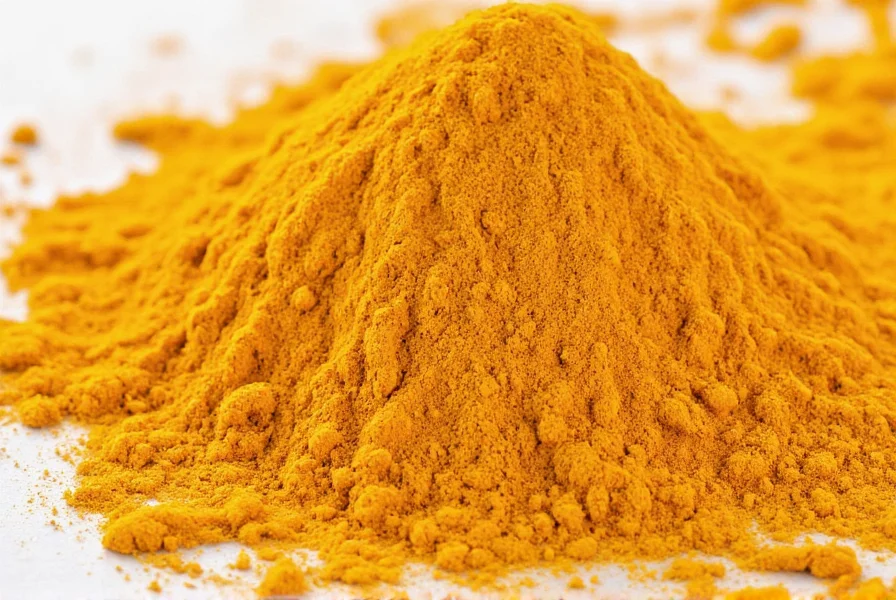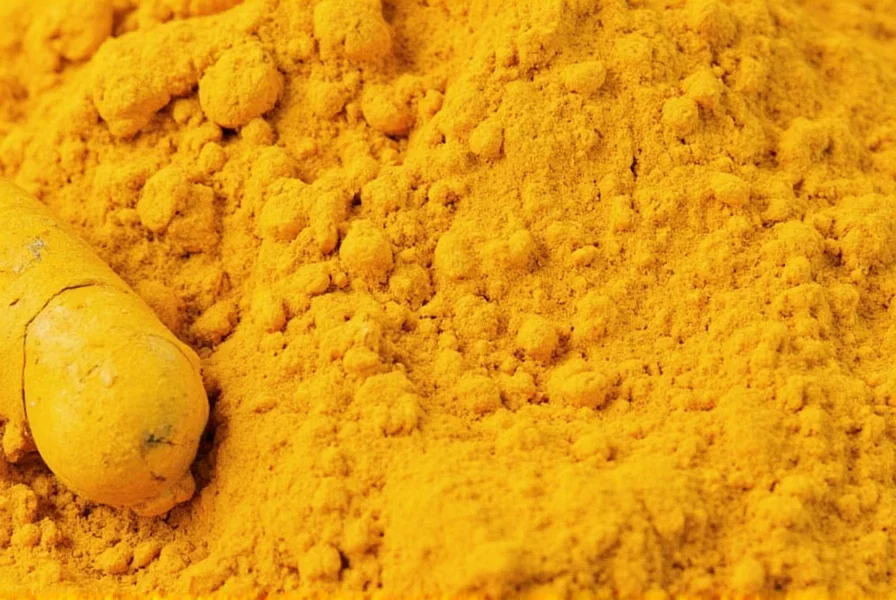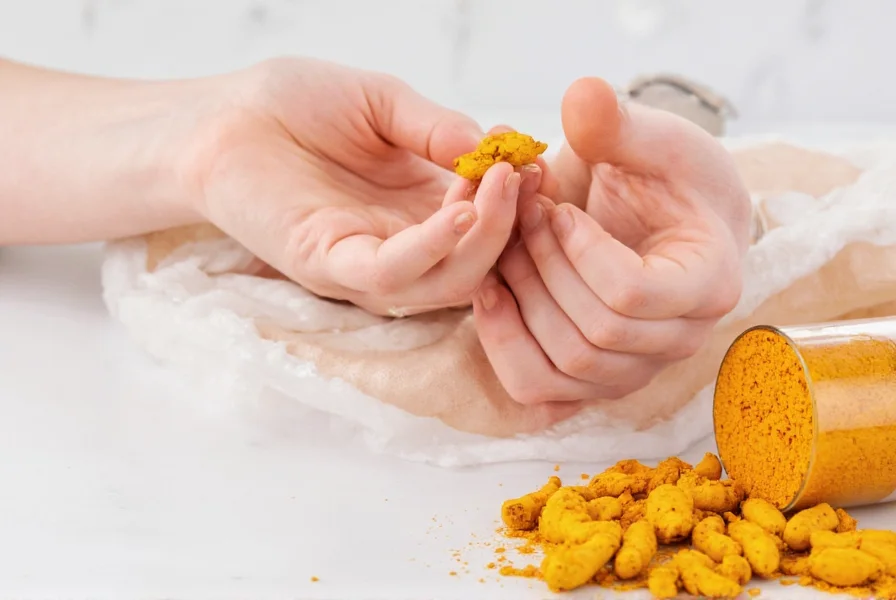Understanding the relationship between turmeric and blood thinning is critical for millions who use this popular spice for inflammation or take prescription anticoagulants. Turmeric's potential blood-thinning effects stem primarily from curcumin, its most bioactive compound, which may interfere with platelet function and coagulation pathways. While culinary use of turmeric in food poses minimal risk, concentrated supplements require caution—especially for those on medications like warfarin, apixaban, or before surgical procedures.
How Turmeric Affects Blood Clotting
Research indicates curcumin influences multiple mechanisms related to blood coagulation. A 2020 review in Nutrients highlighted that curcumin may inhibit thromboxane production, a compound that promotes platelet aggregation. Laboratory studies show turmeric extracts can reduce platelet activation by up to 40% at high concentrations, though these levels rarely occur from dietary intake alone.
The blood-thinning effect of turmeric differs significantly from pharmaceutical anticoagulants. Prescription blood thinners target specific coagulation factors (like warfarin affecting vitamin K-dependent factors), while turmeric's action is more generalized and considerably milder. This distinction explains why turmeric supplements cannot replace prescribed anticoagulant therapy for conditions like atrial fibrillation or deep vein thrombosis.
Scientific Evidence on Turmeric and Blood Thinning
Current research presents a nuanced picture:
| Study Type | Key Findings | Clinical Significance |
|---|---|---|
| In vitro (test tube) studies | Curcumin inhibits platelet aggregation by 20-40% at high concentrations | Limited relevance to human consumption |
| Animal studies | Extended bleeding time in rodents at very high doses | Doses far exceed typical human intake |
| Human clinical trials | Minimal effect on coagulation markers at standard supplement doses (500-2000mg/day) | Significant interaction risk when combined with anticoagulants |
A comprehensive 2022 meta-analysis in Phytotherapy Research concluded that while turmeric shows anticoagulant properties in laboratory settings, its clinical impact in humans at typical consumption levels appears modest. However, the analysis emphasized that combining turmeric supplements with prescription blood thinners significantly increases bleeding risk, particularly with warfarin where multiple case reports document elevated INR levels.

Turmeric vs. Prescription Blood Thinners: Key Differences
Understanding the distinction between natural compounds and pharmaceutical anticoagulants is crucial for safety:
- Mechanism: Prescription anticoagulants target specific coagulation factors (e.g., warfarin inhibits vitamin K epoxide reductase), while turmeric has broader, less specific effects on platelets and inflammation pathways
- Dosage control: Medications provide precise, consistent dosing; turmeric supplement potency varies dramatically between products
- Monitoring: Doctors regularly check INR levels for warfarin users; no standard monitoring exists for turmeric's anticoagulant effects
- Clinical evidence: Prescription blood thinners have extensive human trial data supporting efficacy; turmeric's blood-thinning effects in humans remain less documented
Safety Considerations and Medication Interactions
The most significant risk comes from combining turmeric supplements with anticoagulant medications. The National Center for Complementary and Integrative Health warns that turmeric may enhance the effects of:
- Warfarin (Coumadin)
- Direct oral anticoagulants (DOACs) like apixaban (Eliquis) and rivaroxaban (Xarelto)
- Antiplatelet drugs like aspirin and clopidogrel (Plavix)
A 2021 case report in BMJ Case Reports documented a patient whose INR level doubled after adding turmeric supplements to their warfarin regimen, requiring hospitalization for bleeding complications. If you take blood thinners, discuss turmeric use with your healthcare provider and consider:
- Maintaining consistent dietary turmeric intake (avoid sudden increases)
- Avoiding concentrated curcumin supplements without medical supervision
- Monitoring for unusual bruising or bleeding
- Stopping turmeric supplements 2 weeks before surgery or dental procedures

Practical Recommendations for Safe Use
Based on current evidence, these guidelines can help you navigate turmeric use safely:
- Culinary use: Normal dietary amounts in cooking (½-1 teaspoon daily) pose minimal risk for most people, even those on blood thinners
- Supplement caution: Avoid high-dose curcumin supplements (typically 500mg+) if taking anticoagulants without physician approval
- Pre-surgery protocol: Discontinue turmeric supplements at least 14 days before surgical procedures
- Monitoring signs: Watch for excessive bruising, nosebleeds, or bleeding gums which may indicate over-thinning
- Product selection: Choose standardized supplements with verified curcumin content if approved by your doctor
For individuals with bleeding disorders like hemophilia or von Willebrand disease, even dietary turmeric warrants discussion with a hematologist. The American Heart Association emphasizes that natural doesn't always mean safe, particularly when combined with prescription medications affecting critical physiological processes like coagulation.
Conclusion: Balancing Benefits and Risks
Turmeric offers potential health benefits for inflammation and oxidative stress, but its mild blood-thinning properties require careful consideration. While moderate culinary use is generally safe, concentrated supplements demand caution—especially when combined with anticoagulant medications. The key principle remains: never substitute turmeric for prescribed blood thinners, and always disclose all supplements to your healthcare providers. By understanding both the science and limitations of turmeric's effects on coagulation, you can make informed decisions that balance potential benefits with safety considerations.
Frequently Asked Questions
Can I take turmeric with warfarin?
Combining turmeric supplements with warfarin requires medical supervision. Turmeric may enhance warfarin's effects, potentially causing dangerous bleeding. A 2019 study in Pharmacotherapy documented cases where turmeric supplements increased INR levels in warfarin users. If you take warfarin, maintain consistent dietary turmeric intake and avoid supplements without your doctor's approval. Regular INR monitoring becomes essential if combining these substances.
How long before surgery should I stop turmeric?
Healthcare providers typically recommend stopping turmeric supplements at least 14 days before surgery. This precaution allows time for the compound to clear your system and reduces bleeding risk during and after procedures. The American Society of Anesthesiologists includes turmeric in their list of supplements to discontinue preoperatively due to potential anticoagulant effects. Dietary turmeric in normal food amounts generally doesn't require cessation, but confirm with your surgical team.
Does cooking destroy turmeric's blood-thinning properties?
Cooking doesn't eliminate turmeric's potential blood-thinning compounds, though it may alter their bioavailability. Curcumin, the primary active compound, is heat-stable but has low absorption on its own. When cooked with fats (like in curry preparations), its absorption increases due to enhanced solubility. However, the concentrations achieved through normal culinary use remain significantly lower than those in supplements that pose interaction risks with blood thinners.
Are there natural alternatives to turmeric that don't thin blood?
For anti-inflammatory benefits without blood-thinning concerns, consider ginger in moderation (high doses may also affect clotting), boswellia (frankincense), or omega-3 fatty acids from fish oil (though these also have mild anticoagulant properties). Tart cherry juice shows promise for inflammation with minimal coagulation effects. Always discuss alternatives with your healthcare provider, especially if you take blood thinners or have bleeding disorders, as many natural compounds affect coagulation pathways to some degree.
How much turmeric is safe to consume daily if I'm on blood thinners?
For those on blood thinners, culinary amounts of turmeric (about ½ to 1 teaspoon or 1-3 grams daily) are generally considered safe, but consistency is key—avoid sudden increases. The European Food Safety Authority suggests up to 3 mg of curcumin per kilogram of body weight daily as safe, but this doesn't account for medication interactions. If using supplements, most healthcare providers recommend avoiding doses exceeding 500 mg of curcumin daily without medical supervision and close INR monitoring when combining with anticoagulants.











 浙公网安备
33010002000092号
浙公网安备
33010002000092号 浙B2-20120091-4
浙B2-20120091-4